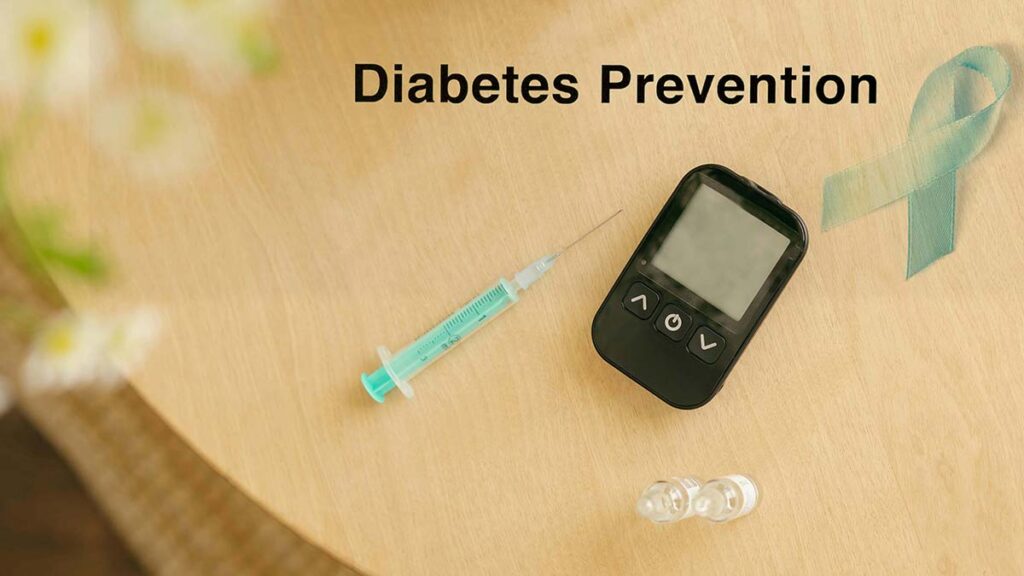Prevention and Risk Reduction
The cost of diabetes and related conditions in 2007 was estimated at $174 billion. With diabetes becoming more common, about 54 million people in the U.S. over age 21 are thought to have prediabetes. Prevention efforts should focus on reducing the risk of both diabetes and related heart conditions. Healthcare providers should identify individuals at high risk and apply strategies to lower that risk.
Preventing Diabetes
Efforts to prevent type 1 diabetes have largely been unsuccessful. A major trial aimed at preventing type 1 diabetes in high-risk individuals using insulin proved ineffective. However, there has been more success in preventing type 2 diabetes. The Diabetes Prevention Program in the U.S. showed that type 2 diabetes can be delayed or prevented through lifestyle changes or medication. In this study, participants who lost around 5% of their body weight and exercised at least 150 minutes a week reduced their risk of developing type 2 diabetes by 58%. Those taking medication (metformin) saw a 31% reduction. Older adults and minority groups benefited most from these interventions, but none of the studies showed a reduction in heart disease risk.
Cardiometabolic Risk
Many people, whether or not they have diabetes, have risk factors for both diabetes and heart disease. These include obesity, high blood pressure, abnormal cholesterol levels, insulin resistance, a family history of diabetes, and smoking. People with diabetes are at higher risk of cardiovascular disease, with around 80% developing or dying from it.
Diabetes and Heart Disease Prevention Strategies
Prevention strategies focus on reducing the risk of diabetes and heart disease. People with diabetes or prediabetes, especially those with additional risk factors like being overweight, should be regularly tested and counseled on lifestyle changes. Those with sleep apnea are also at higher risk of developing type 2 diabetes. The focus is on weight loss, physical activity, and dietary changes.
Lifestyle Interventions
Key lifestyle changes include maintaining a healthy weight, eating nutritious food, and staying physically active. Waist circumference is a better predictor of diabetes risk than body mass index (BMI). For men, a waist over 40 inches, and for women, over 35 inches, is linked to higher risk. Diet should focus on reducing total calories and saturated fat, while increasing whole grains and fiber. Physical activity recommendations include at least 30 minutes a day of moderate exercise, such as walking or gardening.
Smoking
Smoking increases the risk of developing diabetes by contributing to insulin resistance and other health problems. It also raises the risk of complications like heart disease. Healthcare providers should actively encourage smoking cessation.
Blood Sugar, Blood Pressure, and Cholesterol
For people with prediabetes, normalizing blood sugar through lifestyle changes is key. For those already diagnosed with diabetes, the target is to keep blood sugar levels within a healthy range. Managing blood pressure and cholesterol is also essential, as most people with diabetes need more than one medication to control blood pressure. Cholesterol should be monitored yearly, and treatment with statins may be necessary.
Regular Medical Visits and Education
People with multiple risk factors should see their healthcare provider regularly. It’s important to identify high-risk individuals early and provide education about their risks. Preventive care can help manage risk factors before they develop into more serious health problems.
Summary
Preventing diabetes and its complications is essential for improving health. Healthcare providers play a key role in identifying high-risk individuals and helping them reduce their risk through lifestyle changes, regular monitoring, and medication when needed.
Disclaimer: The information provided on this website, updatenow360.com, is for informational purposes only. Always consult a qualified healthcare professional for advice regarding your health and medical conditions.

